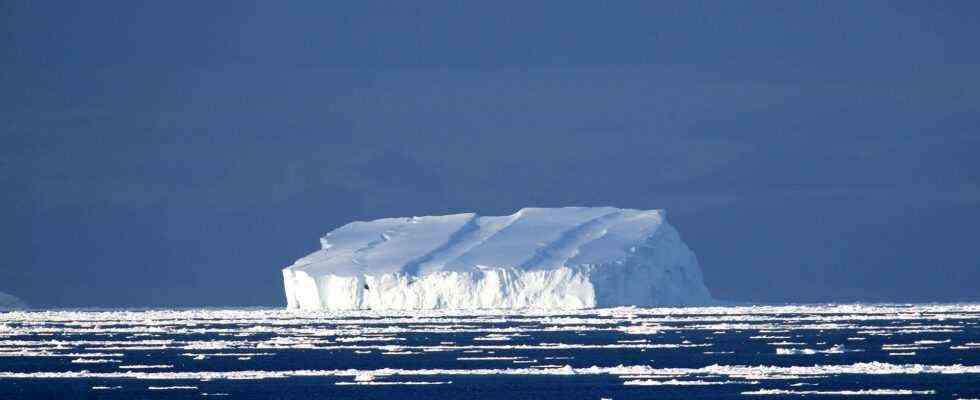Status: October 29, 2021 2:10 p.m.
The plans to designate the world’s largest marine reserve in Antarctica have failed again. The idea was again blocked by China and Russia. Environmentalists are demanding a massive commitment from the new federal government for the project.
The establishment of the world’s largest marine reserve in Antarctica will be postponed for at least another year. At the 40th conference of the Antarctic Commission CCAMLR in Hobart, Australia, there was again no breakthrough due to resistance from Russia and China – as it has been for five years.
Specifically, the aim is to protect a four million square kilometer area in East Antarctica, the Antarctic Peninsula and the species-rich Weddell Sea. It would be the greatest marine protection measure in history. The federal government and many other states have been campaigning for the protected area for years. China and Russia have so far blocked the proposal.
Central role in regulating the climate
The climate crisis is already leaving its mark on the fragile polar ecosystems. A protected area could, among other things, contribute to the preservation of functioning biodiversity. This is the prerequisite for the Southern Ocean, as a carbon sink, to continue to cool the planet and to be able to absorb a significant proportion of carbon dioxide (CO2) from the atmosphere.
“The commission is to create marine protected areas in the Antarctic, but can be demonstrated year after year by individual braking states,” said Greenpeace marine biologist Sandra Schöttner of the dpa news agency. China and Russia only see larger fishing grounds and opportunities for industrial exploitation in melting polar ice caps, the expert criticized. “They completely ignore the climate crisis and species extinction.”
The seas play a central role in regulating the climate, but are increasingly becoming victims of the climate crisis themselves. “They urgently need protection so that they can continue to counteract global warming,” said Schöttner.
Demands on the new federal government
“We are very disappointed to witness this missed opportunity again,” said Claire Christian, executive director of the Antarctic and Southern Ocean Coalition (ASOC). The planet and the precious marine habitats of Antarctica couldn’t afford another year of inactivity. The new federal government will have to do a lot for the project in the coming year, demanded the managing director of Deutsche Umwelthilfe, Sascha Müller-Kraenner.
The Antarctic Weddell Sea alone is six times the size of Germany. Many species that specialize in an icy habitat live there – such as hake, krill and emperor penguins. Since 2016, applications have been made to designate it as a protected area on a regular basis. The Alfred Wegener Institute (AWI), which coordinates polar research in Germany, has compiled the scientific basis for this.
Agreement on a small scale
The CCAMLR members agreed to extend the protective measure that regulates the temporary catches of krill. “However, we know from recent scientific findings that this measure alone is not enough to prevent overly concentrated fishing around the Antarctic Peninsula,” emphasized Andrea Kavanagh, who heads the protection of the Antarctic and the Southern Ocean for The Pew Charitable Trusts.
Antarctica is an international area. Numerous countries maintain a few dozen research stations there. The “Convention on the Conservation of Antarctic Marine Living Resources” (CCAMLR) was established in 1980. The Commission is made up of 25 Member States and the EU. All decisions must be made unanimously.

